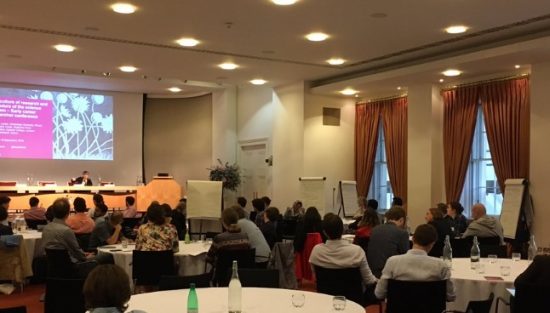Exploring research career transitions and shaping research culture in the UK.

We all have a different idea of what a successful career looks like.
Consider your colleagues; you all work in the same place, perhaps in similar roles, but your career paths are likely to be far from identical. In fact, many of us will have careers spanning different disciplines, sectors and countries and it’s this diversity that enables us all to bring something unique to the table.
But, while the benefits of pursuing non-linear or braided careers are widely acknowledged (the Dowling review stresses the importance of mobility between business and academia for enriching careers, establishing relationships and enhancing collaborations) significant barriers remain.
In particular, pathways in and out of research and academia can be rigid and inflexible. With careers often seemingly mapped out from day one – PhD to postdoc to professorship – there frequently appears to be a lack of support for individuals looking to branch into other disciplines, or for those keen to return or transition into research later in life.
At the Royal Society, we’re challenging these notions of what is possible, or valuable in a career in research. We’re starting what we hope will become a national conversation on how the relationship between individuals and the wider research system is perceived, and how it might be different. The Changing expectations project will draw on experiences of our past and present, and explore potential futures, to identify the interventions needed for success, in all its forms, in an evolving research landscape.
To mark the first stage in Changing expectations, we have launched a series of case studies where individuals from academia, public policy, industry and the arts share their experiences of transitioning in and out of research over the life time of their careers. They discuss the challenges and opportunities of pursuing non-linear or braided careers, and whether they’ve moved from research to industry, policy to academia, research to the arts (or all of the above), they each highlight how diverse an individual’s career can be.
So, if you thought there was such a thing as a set path, we’d ask you to read our case studies and think again: what makes a successful career? And, if you’re contemplating your next career move, here are a few insights and advice points from our case study participants to get you started:
- Professor Jane Clarke FRS, Professor of Molecular Biophysics at the University of Cambridge, reinforces the need to meet people and stay mobile: “I have worked collaboratively all my life and short-term mobility is absolutely key; being able to forge relationships, go to conferences and meet people. If you don’t go and meet people in your field how will you know if you can work with them?”
- Jess Smith, Freelance Science Writer, stresses the benefits of continued learning and development: “Practice and gain experience in whatever way you can. This will help improve skills, show experience when applying for related roles, and help identify your areas of passion and interest, in whichever sector they lie.”
Our case studies highlight the extraordinary value that can be gained through diverse and mobile careers. But, while significant successes can be realised by individuals, the big question is: how can we provide support at an institutional and policy level?
In response to the HEFCE’s consultation on the second Research Excellence Framework (REF), the Society recognised that institutions have a key role to play in developing research talent at all levels, from doctoral student to professorial appointments, and in supporting individuals that choose to pursue non-academic and braided career paths. The Society also highlighted that institutions should be recognised and rewarded for providing support to interdisciplinary research initiatives.
As a further part of the Society’s Changing expectations project on research culture, we are hosting a series of workshops with researchers in academia, industry, government and the ‘maker’ communities to uncover the biggest issues in our current research landscape, and develop shared understanding of what excellent research culture might look like.
While our discussion is getting underway, we need to spark wider debate. We’d like you to ask your colleagues, what is a successful career? And, what would the ideal research culture look like in 2035? Whether you’d like to see a transformation in academic publishing, research funding, public engagement or career progression, we want to get people talking.
You can stay up to date with our latest work on research culture, by visiting our project page and by following us on Twitter @royalsociety, #SciCulture.
